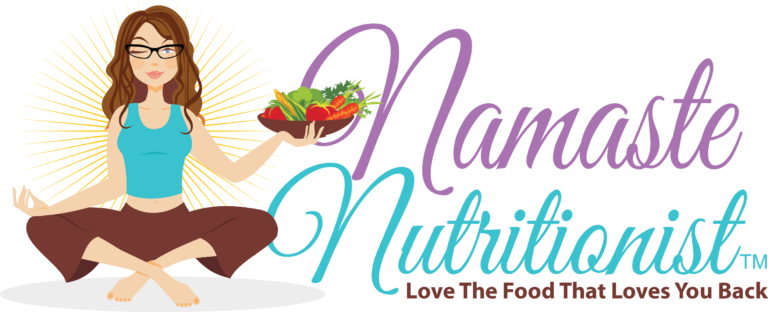I have only one regret about giving up gluten.
I wish I had taken the Celiac test and taken full labs BEFORE going gluten-free. At that time, I could not afford the litany of expensive tests without the help of insurance.
It’s absolutely certain that gluten was destroying my health, slowly and painfully.
In giving up gluten completely, much of my health regenerated. I found energy I thought I’d left in childhood. I built muscle mass after it wasted away from health failures that gluten helped create. A mental fog lifted. My canker sores healed. My joint pain resolved. My chronic, crippling migraines lessened in severity. I had fewer colds.
[ctt title=”Before you give up gluten entirely, identify whether you could have Celiac disease.” tweet=”Before you give up #gluten, identify whether you could have #Celiac disease. http://ctt.ec/0xL4I+ @FrancesLArnold” coverup=”0xL4I”]
I now encourage my clients to get the genetic testing done. Many people give up gluten without testing for Celiac disease, but later decide that they can tolerate “small amounts of gluten”. This practice is detrimental someone with Celiac disease.
If you find that you are sensitive to gluten, you are likely going to be sensitive to other foods as well.
Gluten sensitivity promotes potential problems for leaky gut syndrome. This sets the stage for other food sensitivity issues. Going gluten-free requires a committed lifestyle change – it’s a serious undertaking, not for the faint-hearted. When cutting out gluten, there is no middle road. Every time you eat just a bite, gluten re-injures your gut, and re-inflames your tissues. You either are eating gluten or you aren’t eating it at all. Read here to learn more about food sensitivities.
Celiac disease is a genetic, autoimmune disorder that is quite serious, and it’s symptoms are often SILENT.
Left unaddressed, you may be playing Russian Roulette with other autoimmune disorders. Many silent “symptoms” of Celiac disease manifest as other autoimmune diseases.This includes type 1 diabetes, Hashimotos thyroid disease, rheumatoid arthritis and small intestinal cancer. Many people never manifest any gut disturbances that might suggest a problem.
Now that my gut has healed from gluten’s damage, I can’t know for sure if I have Celiac disease.
It’s years later, and I’ve learned that I do carry two Celiac genes: DQ2 and DQ8. 97% of Celiac patients carry at least one of these genes. 39% of the US population carries variations of the genes. Just because I carry the genes, it is not indicative that I have Celiac disease. Unless I eat gluten again for long enough to re-damage my gut and cause an immunological reaction. That would simply be intolerable.
Gluten addiction can be severe.
Many people struggle to imagine their lives without bread or pasta. As a vegetarian, it was a reliable and comforting energy source for me.
I believe we are only on the precipice of understanding just how severely gluten impacts our gut, our brain and our health.
To learn how gluten is linked with psychiatric disorders, listen to my podcast on Food and Mood here.
Please share this post with others who could use some insight into this topic. If you want help with going gluten-free or learning how to address your symptoms, find out how to work with me here.
Now, you tell me.
Are you eating gluten? What stood out to you in this post that’s surprising? Please comment below.


9 responses to “Before You Give Up Gluten, Consider Celiac”
This is a neat article! I’ve been tested for Celiac many times and test negative. I now have a serve sensitivity to wheat and dairy. Thank you for sharing your knowledge on this topic 🙂
Hi Katie, You’re blessed! I’m glad you’re non-Celiac, but sorry to hear you’re super sensitive to wheat and dairy. Thank goodness you know what not to eat! Some people go through life suffering and don’t really ever figure out what’s bothering them.
Katie, I did the same thing. and now I won’t eat gluten to take the test. Besides, I’ve found so many people who test negative but still can’t handle gluten. I have the skin version (dermatitis herpetiformis) and have to be careful about everything I eat and everything I put in or on my body. For example, my tooth sensitivity went away when I switched to a gluten free toothpaste. I could talk for hours about my poor skin and scalp and all the troubles I had until I figured it out. Now I am so grateful to have clear skin, and a healthy body. Thanks for these posts…they remind and inform me.
What great info Frances! I do NOT believe I suffer from celiac, nor do I really pay much attention to restricting anything in my diet… BUT , I will admit that I do think there might be a tiny wheat thing going on… I do tend to feel “heavy and thick ” in my mid section and even my thighs after wheat… But I looooove me some bread! You can keep the pasts at this point in my life, but rice, potatoes and bread… I live for!
That’s a common complaint with wheat, Kelly. If you don’t have celiac, thank goodness! You just have to decide what you can live with in terms of negative effects from wheat.
Kelly, I have given up gluten and I thought it would be impossible, because like you I live for bread and pasta. If you decide to try to step away from gluten, just try some of their breads (Udis) and maybe some quinoa pasta (trick-cook exact time) I also made a berry pie with a boxed gluten free pie crust. It was amazing! good luck
Good advice, Aileen. Gluten-free really is much, much easier now-a-days than anytime in recent history.
Thank Frances! It’s amazing how people will abuse their digestive system. I have always said, if we could SEE our digestive system, we would be so much better with our diets. Just becuase we can’t see the damage, many people are willing to let their gut suffer! It’s a shame, really. Especially when Chinese Medicine considers the digestion the basis of good health!
Dorothy, I think that most people don’t realize that they are doing something damaging to their digestive system. Many people aren’t taught to listen to their bodies, but to just cover up symptoms with pills. I have compassion for people in their struggles, as so often, they don’t even know what is the cause of their troubles. Many people have suffered a lot, and have tried many remedies, but to no avail. That gets old and frustrating. People need lots of love and support through the journey to healing. Even when they discover what’s wrong, they may find it’s really hard to give up beloved foods that hold many memories for them. It’s harder for adults to make the changes, in many ways, as they already have so many emotions and stories wrapped up with their foods. However, when they make the needed changes and gain the rewards and their health returns, usually that’s enough to make a permanent change.